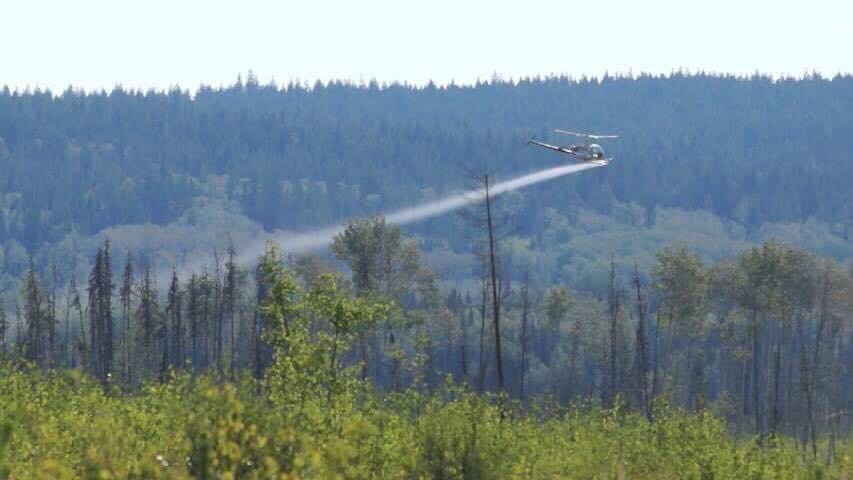In light of California’s decision to add the weed-killing herbicide glyphosate to its list of “cancer-causing” chemicals, New Brunswick advocacy groups continue to call on the provincial government to ban its use on forests.

‘Stop Spraying New Brunswick’ member Dr. Caroline Lubbe-D’Arcy said California’s decision shows that caution needs to be exercised when dealing with glyphosate. She said the province should follow the precautionary principle and ban the use of it on provincial forests.
READ MORE: New Brunswick report on Glyphosate use released
“We want the practice stopped and the thing is that our provincial government is basically relying entirely on Health Canada’s decision, they’re refusing to look at the New Brunswick situation which is different,” Lubbe-D’Arcy said.
Lubbe-D’Arcy said Health Canada is looking at the issue with agriculture as their main focus, but said New Brunswick’s use of the herbicide for agriculture only accounts for 11 per cent of its use, while 61 per cent is used in the forestry industry.
READ MORE: ‘Stop Spraying New Brunswick’ blames deer population decline on herbicides
She said the province needs to do more studies focusing on the impact it has specifically in New Brunswick.
Conservation Council of New Brunswick forest conservation co-ordinator Tracy Glynn also thinks the province should stop the spraying of glyphosate on forests.
“We know that Health Canada is currently doing a review in light of the new studies…and in light of the World Health Organization’s classification of glypohsates as a probable carcinogen, I think the prudent move is to take glyphosates out of the woods,” Glynn said.
READ MORE: Petition demands New Brunswick stop using herbicide glyphosate
In an e-mail statement from New Brunswick acting deputy chief medical officer of health Dr. Jennifer Russell said that in September 2016, the province released its report on glyphosate. The report was released “following the classification of glyphosate into Group 2A “probably carcinogenic to humans” by the International Agency for Research on Cancer (IARC).”
Russell said the review found that exposures to glyphosate in New Brunswick were “the same or less than elsewhere.”
“Providing that pesticide labels and spray permits are followed, glyphosate should be safe for use,” said Russell.
She said the province will continue to monitor the situation.
When it comes to the use of glyphosate on New Brunswick forests, she said aerial forestry is the most common application method in the province.
“In other words, it is ‘the worst case’ for the greatest amount of product handled, so it was selected for a specific case study. The case study showed that the quantities handled by workers in New Brunswick were less than what was assumed by Health Canada’s Pest Management Regulatory Agency in setting acceptable risk levels,” Russell said.
She said there is currently no reason to believe that other application methods face unacceptable risks as long as they also operate within label requirements. She later added Health Canada is responsible for the regulation of pesticides to protect Canadians’ health and their environment.




Comments